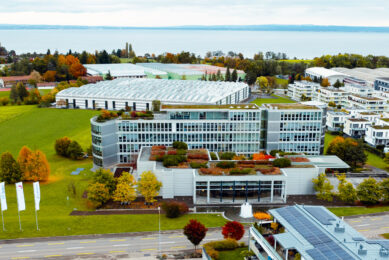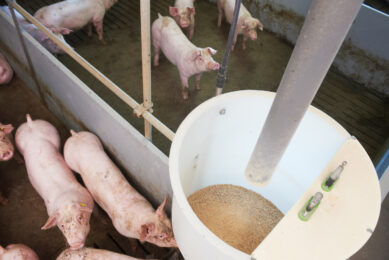Feeding the world summit: Focus on 2050 again
The world’s population has now surpassed the seven billion mark and is predicted to reach nine billion by 2050. With a billion people already hungry, this raises the question– how can we feed them and the billions still to come?
This was the question being addressed last week at Economist Conferences ‘Feeding the World’ summit in Geneva, Switzerland on 8th February. The day saw some of the most respected names from agribusiness, Government, international agencies and the scientific community come together to generate fresh solutions to critical food security challenges.
Some of the key discussions at the summit centered around the role of public-private partnerships as a key mechanism for advancing agriculture to meet global challenges in food security. Developing new crops and increasing crop yields through innovative research and technology will also play a crucial role in increasing agricultural productivity.
Not only is the rising global population putting a strain on our world’s resources, climate change is threatening farmers’ ability to produce enough food to meet this growing demand. The food price hikes of 2008, hundreds of millions of people were pushed into poverty, sparking riots across much of the world. Governments became alerted to what might lie ahead and rich nations, including China, South Korea and Japan began buying and leasing huge quantities of foreign land for the production of food whilst some countries either banned or limited food exports to safeguard their own supplies. Then at the start of 2011, world food prices reached a new historic peak, leaving millions more people hungry.
The problem is not going to go away and these issues need to be addressed now. As José Graziano da Silva, the newly appointed director-general of the Food and Agriculture Organization (FAO), said in his opening speech, “To build a food secure 2050 we need to start now”. He then went on to say, “With regard to the question we are asking today, it is HOW and not IF we can feed the world in 2050”.
The morning moved on to speech given by Paul Bulcke, CEO of Nestlé, who emphasised how the private sector can have an important role to play in addressing the global food crisis. He discussed how his company is working with approximately 600,000 farmers in innovative partnerships worldwide to provide technical assistance and financial support. This theme was repeated later in the day in a panel debate, which included Jim Borel of DuPont, Juan Ferreira of Monsanto and Ellen Gustafson of The 30 Project. Ferreira spoke about a public-private partnership called Water Efficient Maize for Africa (WEMA), which is using advanced plant breeding and biotechnology to develop more drought tolerant maize varieties. Borel also highlighted the importance of technology, but said, “We must strike the right balance between new technology and better practices using existing technologies”.
Speaking at the conference, Kavita Prakash-Mani of Syngenta said that companies from many different sectors can all play their part in helping to ensure food security by “providing more training, better inputs, access to finance, access to better storage and transport and better prices for crops”.
Pascal Lamy, Director-General of the World Trade Oragnisation (WTO) later gave a speech on open trade and food security. Speaking about international trade and the important role it plays in global food security, Lamy said, “By fostering greater competition, trade allows food to be produced where this can be most efficiently done”. Referring to the export restrictions during the 2008 food price crisis, Lamy described these as “starve-thy-neighbour” policies, which he argued brought “importing countries to their knees to plead for food security”. His final remarks urged us to get our policy mix right on food production and on trade to help address food security challenges.
In the afternoon, there was another panel debate, this time on the role of science and technology in increasing agricultural productivity. The panel consisted of Nina Fedorofff of Pennsylvania State University, Thomas Lumpkin of CIMMYT and Howard Shapiro of Mars who discussed how technology can help increase crop yields by 1.5% over the next 40 years to feed mankind adequately. “Science does hold the solution” said Fedoroff, “but the question is whether we use it”.
China– the world’s most populous nation and the second largest economy – has become heavily dependent on food imports from countries such as the US, Brazil and Argentina to help meet the consumption demands of its newly-rich citizens. Despite this, China has enough arable land and water to feed its projected population of 1.34 billion in 2050, even with current available technologies. Jikun Huang of the Chinese Academy of Sciences talked us through how China’s agriculture trading patterns are evolving as its agricultural sector modernizes and becomes more productive, urging that “China will be 99% self-sufficient for food by 2020”.
During the Feeding the World summit, Farming First filmed a number of interviews with speakers, including Jim Borel of DuPont, Nina Fedoroff of Pennsylvania State University and KavitaPrakash Mani of Syngenta. Video highlights can be seen on The Economist Conference website and longer versions of the interviews will soon be available on Farming First TV.
Farming First is a global coalition representing the world’s farmers, scientists, engineers and industry as well as agricultural development organisations. Farming First calls for a broad-based, knowledge centred approach to increase agricultural output in a sustainable and socially responsible manner.











